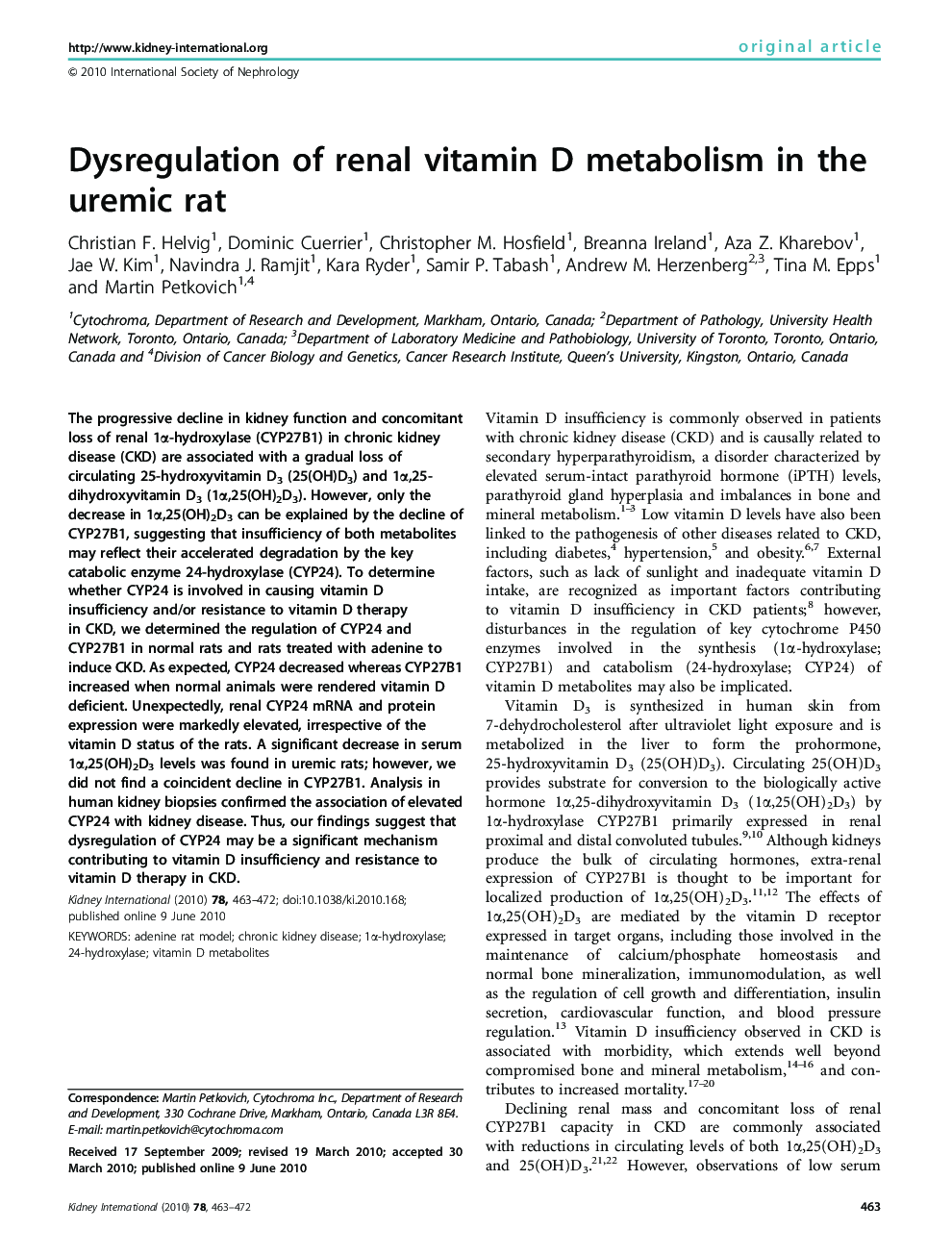| Article ID | Journal | Published Year | Pages | File Type |
|---|---|---|---|---|
| 3883580 | Kidney International | 2010 | 10 Pages |
The progressive decline in kidney function and concomitant loss of renal 1α-hydroxylase (CYP27B1) in chronic kidney disease (CKD) are associated with a gradual loss of circulating 25-hydroxyvitamin D3 (25(OH)D3) and 1α,25-dihydroxyvitamin D3 (1α,25(OH)2D3). However, only the decrease in 1α,25(OH)2D3 can be explained by the decline of CYP27B1, suggesting that insufficiency of both metabolites may reflect their accelerated degradation by the key catabolic enzyme 24-hydroxylase (CYP24). To determine whether CYP24 is involved in causing vitamin D insufficiency and/or resistance to vitamin D therapy in CKD, we determined the regulation of CYP24 and CYP27B1 in normal rats and rats treated with adenine to induce CKD. As expected, CYP24 decreased whereas CYP27B1 increased when normal animals were rendered vitamin D deficient. Unexpectedly, renal CYP24 mRNA and protein expression were markedly elevated, irrespective of the vitamin D status of the rats. A significant decrease in serum 1α,25(OH)2D3 levels was found in uremic rats; however, we did not find a coincident decline in CYP27B1. Analysis in human kidney biopsies confirmed the association of elevated CYP24 with kidney disease. Thus, our findings suggest that dysregulation of CYP24 may be a significant mechanism contributing to vitamin D insufficiency and resistance to vitamin D therapy in CKD.
